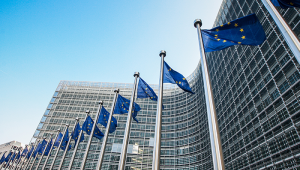These partnerships, co-financed by the European bloc, have been found to suffer from widespread shortcomings and offer limited benefits, a report by the European Court of Auditors released today found.
Overall, the partnerships audited have resulted in €1.5bn of inefficient and ineffective spending and cannot be regarded as an “economically viable option” for public infrastructure delivery, it said.
“This damning report should be the final nail in the coffin for public private partnerships, which have continually shown to be a hugely expensive, inefficient and high risk way to deliver public infrastructure and services,” said Sarah-Jayne Clifton, director of the Jubilee Debt Campaign, a group working to end poverty caused by unjust debt.
“The EU, UK and World Bank must learn the lessons from their failure in Europe, including here in the UK, and stop promoting this false solution for financing public services around the world,” she added.
Oskar Herics, the member of the ECA responsible for the report, said: “Almost €1.5bn extra in public funds was needed to complete the five motorways audited in Greece and Spain. Some 30% of this (€422m) was provided by the EU.
“This was spent ineffectively in terms of achieving the potential economic benefits.”
The auditors looked at 12 EU co-financed partnerships in France, Greece, Ireland and Spain in the areas of road transport and information and communication technology, with a total cost of €9.6bn and an EU contribution of €2.2bn.
The report said the majority of PPPs audited were subject to considerable inefficiencies during their construction, with seven of the nine completed projects - worth €7.8bn – experiencing cost incurring delays of up to 52 months and major cost increases.
Additionally, it found that PPPs allowed authorities to procure large-scale infrastructure through a single procedure, but came with the risk of insufficient competition and put the contracting authorities in a weaker negotiation position.
For example, in Greece – which is the largest recipient of EU contribution with 59% of the total - the cost per kilometre of the three motorways that the auditors looked at rose by up to 69%, while the scale of the projects were reduced by as much as 55%.
Both value for money and transparency in the PPPs were “widely undermined” by unclear policy and strategy, inadequate analysis, off-balance sheet recording of PPPs and unbalanced risk-sharing arrangements, the ECA said.
Between 2000 and 2014, the bloc provided €5.6bn for 84 PPPs, with a total project cost of €29.2bn.
The report said: “The main reasons for this ineffective spending were that financial gaps caused by the renegotiation of PPP contracts had to be covered, projects were poorly prepared by public partners and, most crucially, contracts with private concessionaires were signed before relevant issues had been solved.”
In response to the audits, the ECA made a number of recommendations to the European Commission as well as to member states.
These included cutting down on the promotion of wide use of PPPs until the issues identified had been improved through a better PPP EU framework, which would mean better value-for-money assessments.
It also called on the commission and members to mitigate the financial impact of delays and re-negotiations on the cost of PPPs by the public partner, and to base the selection of partners on sound comparative analysis.












